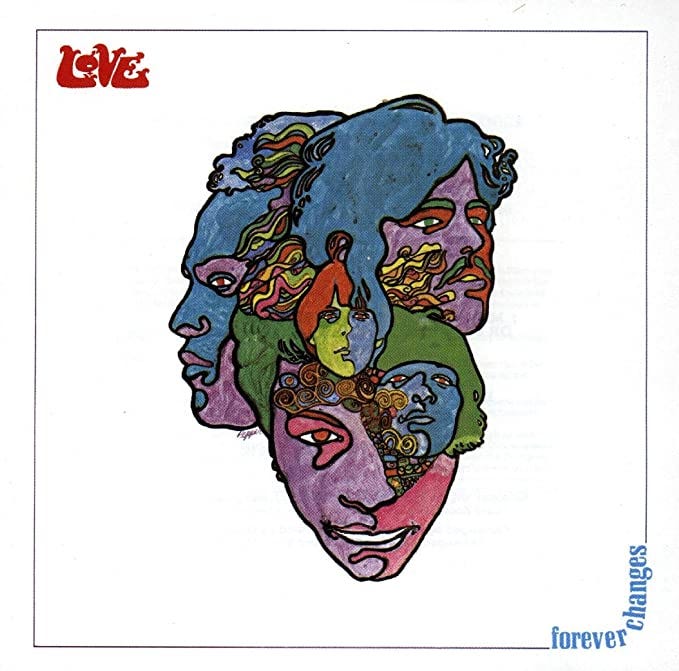There's a man who can't decide if he should fight for what his father thinks is right
Love - 'You Set The Scene' (Forever Changes - 1967)
Love’s Forever Changes is an album that was well received on release but slowly, year-by-year has taken place at the top of the cannon of psychedelic rock music of 1967 alongside The Doors1, The Beatles, Pink Floyd and Jimi Hendrix. But it is not merely a snapshot of The Summer of Love - it points to the souring of the Sixties’ dream in 1968 and 1969.
‘You Set The Scene’ is the longest track on the album at over six minutes; with a title like that, it sounds like it should be an opening track. What it does, though, is bring the album’s themes together. Lyricist and singer Arthur Lee clarifies: Nothing is permanent - people, places, societies and relationships change, and that can be for better or worse. (“You go through changes…”)
The quoted line at the top is undoubtedly a reference to the war in Vietnam and the conflict a young man feels around doing as his father expects. Maybe his father even fought in World War II and saw it as the moral, right thing to do. At the same time, the young man may find the whole Vietnam war morally repugnant - I wouldn’t be surprised if the people around the band were more and more politically and socially aware in 1967 and ahead of the curve. That foresight would place them where swathes of the Western world would be within 18 months. The whole album is full of these lyrical snippets bursting with vivid imagery or clever phrasing2 and orchestration and arrangements by Dave Angel - no, not that one.
The song doesn’t just point lyrically at some of the tension under the surface at the time. Love’s prior work to this album was not as acoustic as a lot of this album is; the electric guitar squalling is rarer and more potent for the sporadic utilisation. You can even argue that they drift into what would be called prog-rock within five years on this track. Twice the length of most of the songs on the album? Yes. Time signature changes? Yes. Horns, strings and jazz approximations? Yes, yes and yes. It even effectively glues two songs3 together in a similar fashion to The Beatles’ ‘A Day In The Life’, a song that was only released six weeks before this was recorded.
There’s a clash with the hippy counter-culture towards the end with Lee declaring that life isn’t a game, and it is said that he was very aware that all of the world’s ills were not going to be solved by ushering in the sunshine. There was also animosity between Lee and Bryan MacLean during the recording of Forever Changes, to the extent that MacLean quit the band not long after.
At the very end of the song, Lee chants and shouts “Time! Time! Time! Time!” in what sounds like a clear nod to The Chambers Brothers' single, released the year before4 "Time Has Come Today". As Lee laments the small amount of time, he has on the planet and uses that as an inspiration to make a difference as he fades out, the album finishes with a procession of trumpets that follow him.
Elektra label mates who were overshadowing them as a draw by this point in 1967.
The news today will be the movies for tomorrow” from ‘A House Is Not a Motel’ was stuck in my head for a few weeks after 9/11 and the opening line of ‘Live and Let Live’, “Oh, the snot has caked against my pants…” doesn’t take much prompting to appear.
Verses 1 and 2 are the first songs before verses 3 through 6 act as an extended coda to the first part and the album.
The Chambers Brothers recorded their album The Time Has Come in early August 1967, days before Love recorded ‘You Set The Scene’ and recorded an 11-minute extended version of their earlier hit, as you guessed it, the closing track. Time!




